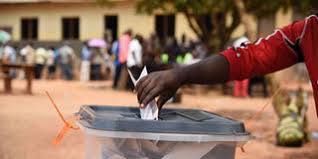Chameleon Moves Raise Suspicion as Dormant Parties Rebrand Ahead of 2026

The political landscape is undergoing a dramatic metamorphosis, with two parties, the Green Partisan Party (GPP) and the National Peasants Party (NPP), shedding their old skins in a bid to capture the electorate's attention ahead of the 2026 general elections.
However, questions abound about the sincerity of these transformations and the individuals orchestrating them, fuelling speculation and raising concerns about potential political instability.
The Uganda Gazette's April 25 publication revealed the GPP's radical overhaul, a party previously languishing in near-obscurity since its 2009 registration.
The party has not only changed its name, but also its colours, symbols, slogan, ideology, and constitution, leaving observers perplexed about its new identity and the forces driving this sudden revival.
Similarly, the NPP, a party that has existed largely in name only for over a decade, has also undergone a significant rebranding.
This flurry of activity coincides with a period of political turbulence, marked by the fallout between the National Unity Platform (NUP) and its former Deputy President, Mathias Mpuuga.
Whispers in political circles suggest that Mpuuga is eyeing either the GPP or the NPP as a potential vehicle for his political ambitions, while the People's Front for Transition (PFT) also appears to be navigating a similar path.
The mystery surrounding the individuals behind these rebranded entities adds another layer of intrigue, leaving many to wonder who is pulling the strings.
Electoral Commission spokesperson Julius Mucunguzi confirmed the changes, stating that a 21-day window is now open for public objections.
"This is a period for individuals to raise any concerns they may have regarding these party transformations," he said.
However, scepticism persists. Bukimbiri County Member of Parliament Eddie Kwizera expressed concern about the proliferation of "briefcase parties" that emerge only when political disagreements arise.
"Many of these parties register and then remain dormant until they sense an opportunity," Kwizera said.
"Ugandans tend to subscribe to individuals, not parties, so many of these formations will remain irrelevant."
Kwizera also criticised the Electoral Commission for maintaining a registry of dysfunctional parties, arguing that they contribute to political polarisation.
"Keeping these parties on the books only allows them to resurface and create further divisions in the political arena," he stated.
The rebranding of the GPP and NPP has sparked a wave of speculation and uncertainty.
While the parties claim to be ushering in a new era, the lack of transparency surrounding their transformations, coupled with the potential involvement of disgruntled political figures, raises serious questions about their legitimacy and long-term viability.
As the country prepares for the 2026 elections, the political landscape is becoming increasingly complex, and the true intentions behind these rebranded parties remain shrouded in mystery.
Two long-dormant political parties have resurfaced with new names, symbols, and ideologies ahead of the 2026 elections, stirring speculation about their real backers and casting doubt over their intentions



0 Comments